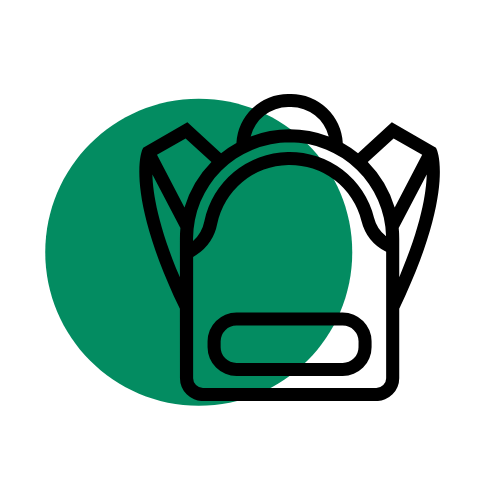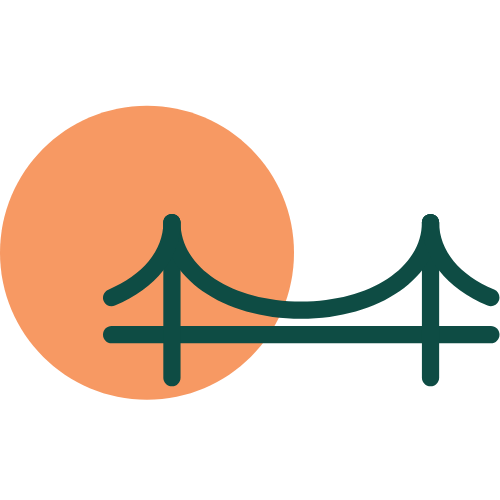West Michigan Continues to Welcome Refugees In Spite of Federal Policy Uncertainities
What a year 2019 was! The Refugee Education Center is honored to be entrusted with supporting refugees on their journeys to become fully participating members of the West Michigan community.
Our mission drives our team now more than ever, as recent uncertainties with the Federal Refugee Resettlement Program have caused entire states and communities to rethink their stance on welcoming refugees. We are proud that our community continues to be a welcoming new home for those seeking a new start.
2019 Highlights and Updates in Our Community
Despite recent cuts to the Federal Refugee Resettlement program, we at the Refugee Education Center anticipate a growth in the demand for our programs and services in 2020.
Despite an overall national decrease in the number of refugees allowed to resettle in the United States - from 110,000 in 2016 to an 18,000 cap in 2020 - West Michigan has become the new home for refugees at historic levels.
Since 2016, Michigan has been one of the top six state destinations for newly resettled refugees, with 8,771 resettling in the state during this time. In addition, over 55 percent of refugees resettled in Michigan during this same time period did so in Kent County. This, along with a growing number of families with refugee backgrounds moving to Grand Rapids from other parts of the country, is a testament to our community’s support services.
We are proud that West Michigan has carried this torch and become a light to refugee families who were forced to leave their homes. We are also proud to do our part in providing these essential programs and services and to support refugees in their journeys to become fully participating members of the West Michigan community.
What’s New at the Refugee Education Center
In the past two years, the Refugee Education Center has more than doubled in size, expanding our programs and service offerings, which greatly impacts our ability to provide holistic support to refugee families. Responding to the expressed needs and in collaboration with the refugee community, we have expanded our programs to include the following:
HANDS CONNECTED
In 2018, the Refugee Education Center launched the Hands Connected early childhood education program by opening the Hands Connected Center and merging it with the Hands Connected Network, a group of home-based early childhood education businesses.
In its first year of operation, the Hands Connected program gained national attention as a unique model for refugee services. Its ability to create a multilingual educational environment for refugee students by refugee educators to learn in both their home language and English has earned national attention. This national attention included personal tours of the Hands Connected Center for the Federal Assistant Director of the Office of Refugee Resettlement and Michigan State Director of Refugee Resettlement to understand whether the program could be replicated in other communities across Michigan and the United States.
Currently, the Hands Connected Center teachers educate students in English as well as one of five other languages: Arabic, Burmese, Kinyarwanda, Swahili, Nepali, and Kirundi. Children are retaining their ability to communicate with parents and caregivers and are also prepared to enter kindergarten.
Additionally, local and national fundraisers have also engaged the Refugee Education Center with a similar goal of expanding the program both locally and beyond. The Hands Connected Center currently has three classrooms for 25 students ages 0–3, and the Network serves 110 pre-K children. For the Hands Connected Center, we are currently pursuing an opportunity to expand into a full pre-K offering in 2020 while also tripling the number of students we serve.
The Refugee Education Center is also in the process of training five new home-based businesses to join the Network and has plans to train five additional businesses in 2020, bringing the total number to 25 by year-end and increasing capacity to serve up to 175 children through the Network.
HIGH SCHOOL TRANSITIONS
In 2019, the Refugee Education Center assisted 59 students in our High School Transitions program. Twenty-nine students participated in college and career support meetings, and 30 received graduation support. The program is designed to address the specific needs of newly resettled refugee students, ages 15–24, who are entering the US school system later than most.
For many of these students, chances to receive a traditional high school diploma are diminished because of state age-out laws that prevent students 20 years or older from staying in a classroom with students under the age of 18. Our program supports students in these difficult decisions, helps them with identifying and re-enrolling in schools that would give them a better chance at graduating with a traditional high school diploma, and prepares them for a successful transition into a career, trade school, and/or post-secondary education.
Our team members meet with students and their parents to develop a graduation plan. Then, we coordinate with community partners (e.g., area high schools, trade schools, local colleges, career mentors, and others) to implement a strategy and support each student.
In 2020, we plan to provide this service to 85 students in Grand Rapids. We are also excited to announce that we have partnered with the Community Foundation of Holland/Zeeland to expand this service to 40 students attending schools in Ottawa County. This expansion is an important step in our growth as an organization, and we are honored to have the opportunity to do so.
Collaborating with local school districts, individual educators, and administrators is also a priority to support systematic changes and improvements to the effectiveness of schooling for refugee students and increase the likelihood of a successful transition for said students into the next phase of their education or career.
In 2020, we plan to host a professional development seminar for 150 educators and administrators addressing the unique needs of refugee students.
PROJECT FAULU AND BRIDGES (K-12 PROGRAMS)
Our K-12 programs continue to expand, and demand exceeds our capacity. In the 2018-2019 school year, we served just under 180 individual K-12 students in our Project Faulu and BRIDGES programs.
Our cornerstone K-12 support program for refugee students, Project Faulu, focuses on STEM/STEAM, literacy, and socio-emotional well-being for refugee children whose cultural adjustments and past trauma can make learning difficult. In the 2019-2020 school year, we anticipate serving 200 students on a regular basis.
BRIDGES (Building Refugee Independence and Delivering Guidance for Educational Success) is designed for newly resettled refugee children yet to start school. We provide a safe and welcoming environment for participants to prepare for their K-12 education and relieve anxiety prior to entering a classroom. The program exposes participants to new topics, themes, and culture they will encounter in their new school. Our goal is that each participating student is prepared to start school on the right foot.
Our 2019 BRIDGES cohort comprised 70 students, and we anticipate only a slight decrease in 2020 due to the resettlement trends mentioned above. We also love to gift program participants with a new backpack filled with supplies and a school uniform, equipping them to start the school year successfully.
NAVIGATION SERVICES
Our Refugee Navigators are integral to our ability to serve refugees in West Michigan. Equipped with lived experiences of their own, Navigators provide guidance through the maze of public and private support systems for newly resettled and more established refugees in the community.
Navigators meet with families to educate them on and enroll them in our direct service programs and/or refer them to partners’ direct services and/or other state-funded benefit programs. Through this program, we supported 253 individuals in 2019. One hundred fifty-five parents participated in discussions and orientation that made the transition into the US school system easier. Topics covered school attendance, graduation requirements, resolving school-related conflicts, expectations of relationships between parents and teachers, and answering questions as issues arise. All 253 students met with a Navigator to receive general guidance and support, covering a variety of needs and topics.
In 2020, we believe resettlement trends may once again affect the demand for our services from newly resettled families.
Denis's Story
Denis arrived in the United States with his grandmother in 2018 as a refugee from Rwanda. Denis knew very little English and had a very limited support system at home. His grandmother’s limited language skills and need for daily care and support pulled Denis in many directions and put a lot of responsibilities on his young shoulders. Through one of our Refugee Navigators, we helped Denis enroll in a local high school and in the Refugee Education Center’s K-12 support programs.
Our team quickly realized how bright Denis was and believed in his ability to flourish if provided some support, specifically with language. Throughout his first school year, Denis greatly improved his English language skills, and his hard work paid off when he was offered a spot in the Grand Rapids LEAD program, which he attended last summer. Denis dreams of continuing his education by pursuing a degree in medicine and becoming a doctor. He is excited about what his future holds and is eager to contribute in a significant way to his community and society.
Please consider one of the many ways to be involved with the Refugee Education Center and support newly resettled refugees in West Michigan.







